INTERVIEWS
Kevin Bradley
Interviewer: Marcela Torres Molano
Language of interview: English
Country of practice: Australia
Profession: Architect and architecture professor
Kevin Bradley is an Australian architect and professor. His work focuses on participatory design for restorative practices and processes of co-design in carceral settings. According to Bradley, architecture schools in Australia currently have two major challenges to overcome: first, the lack of diversity in the student community, and second, the absence of studio classes taking place outside the faculties and in direct relation with local contexts. For Bradley, architecture schools need to prioritise human-centred design over aesthetics-based studios, to achieve social progressive approaches that better address questions of justice.
During our interview, Bradley explains the main challenges of designing in prison settings. In terms of ethical issues, he highlights the importance of acknowledging the privilege and difference of background between the designers and participants; the responsibility to address the designer’s bias; the importance of recognising all knowledge as relevant, as well as ensuring the design is culturally safe for all participants. He then explains the importance of setting a safe space, which includes taking into account methodologies, processes, and choosing the right physical site. In terms of methodologies, Bradley describes his doctoral approach that included processes of co-design with custodial communities. He talks about equitable facilitation of the design process, by applying a constructionist approach and a phenomenological perspective to find collective ways to design.
Further, he talks about several case studies of co-design for restorative purposes. First, an old university studio that led to the design of Indigenous housing, in which inmates were involved in the actual construction of the homes. Second, a community centre, also designed in the studio, and built by the inmates.Third, his current studio work on restorative justice, in which students are in charge of collecting data based on the experiences of the participating inmates.
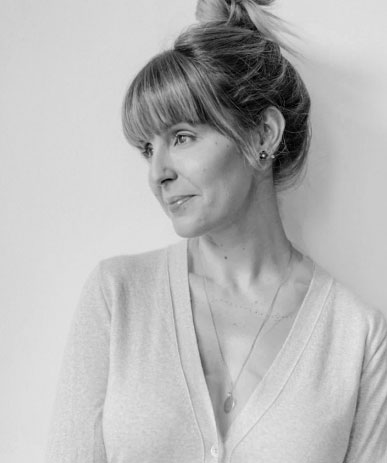
is an author, speaker, columnist, and podcaster in the fields of architecture and decorative arts. She is completing her MA in Art History at Concordia University, Montréal, and holds a Bachelor of Commerce with a major in Marketing from John Molson School of Business. She studied Industrial Psychology in Los Angeles, California. Sicotte is the author of two published books on design (2015, 2018) published by Les Éditions Cardinal.

is a Colombian PhD candidate in the Department of Art History at Concordia University. She has a background in architectural design and community activism and holds a master’s degree in Building and Urban Design from the Bartlett School of Architecture in London, England. Her interests focus on socially-engaged art, social movements, collaborative activism in post-conflict scenarios, collectively-produced art, and art produced in relation to the built environment.
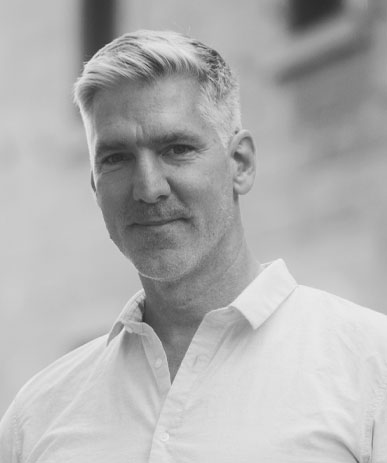
is a PhD candidate in Humanities at Concordia University. His research focuses on spatial agency, social aesthetics, youth narratives, and graphic representations of urban memory. He has published on the relationship between children, play, and public space in Cartagena, Colombia. He has also worked as an editor on literary projects, including Territorio Fértil, which received the María Nelly Murillo Hinestroza award for Afro-Colombian literature.
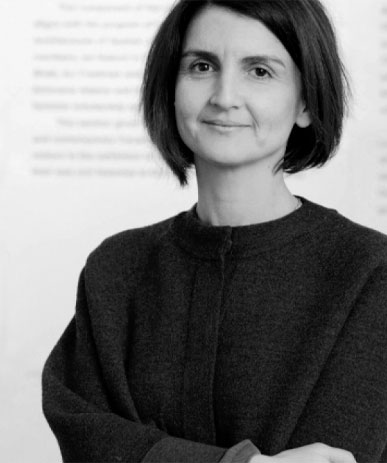
is Associate Professor and Canada Research Chair in Architectures of Spatial Justice (Tier 2) at the Peter Guo-hua Fu School of Architecture at McGill University, Montréal, Québec, Canada. Her research interests include low-income housing and participatory design, civil protest and urban design, and campus landscapes and race. Her publications include the co-edited book, Orienting Istanbul (2010) and solo-authored book, Istanbul Open City (2018).
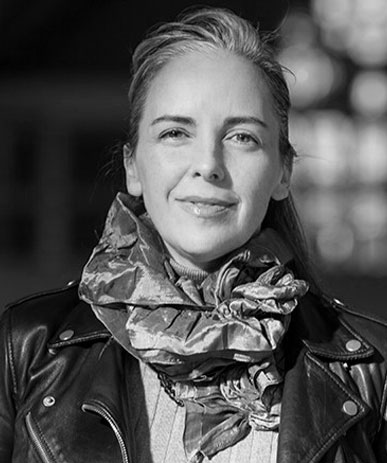
is an artist and a professor of Art History at Concordia University. Her work focuses on women and the history of the built environment, urban landscapes, research-creation, and oral history. She has published on the spatial history of the suffrage movement, public art, gardens, and the politics of urban change. In addition to her research on the spaces of restorative and transitional justice, she is leading an oral history project on the urban memories of diverse Montrealers.
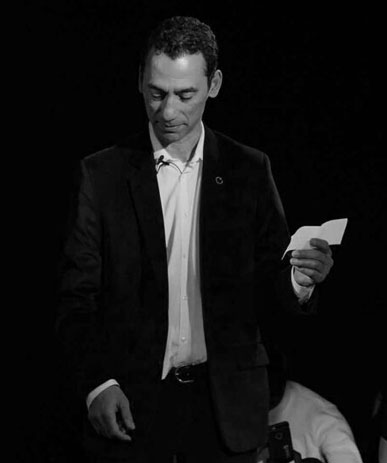
is Associate Professor in the Department of Theatre at Concordia University, Montreal (Quebec, Canada). He is also the second co-director of Concordia’s Centre for Oral History and Digital Storytelling. His latest publications explore listening in the context of post-conflict performances of memory. For instance, see ‘Facilitating voicing and listening in the context of post-conflict performances of memory. The Colombian scenario.’ In: De Nardi, S., Orange, H., et al. Routledge Handbook of Memoryscapes. Routledge: London. (2019), and his article ‘Not being able to speak is torture: performing listening to painful narratives’. International Journal of Transitional Justice, Special Issue Creative Approaches to Transitional Justice: Contributions of Arts and Culture. (March, 2020)